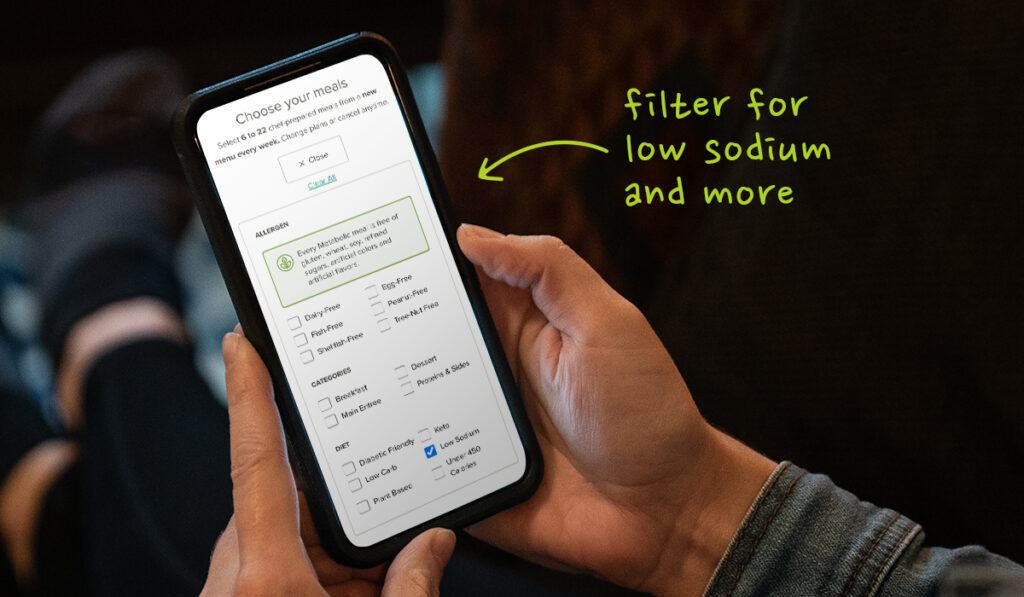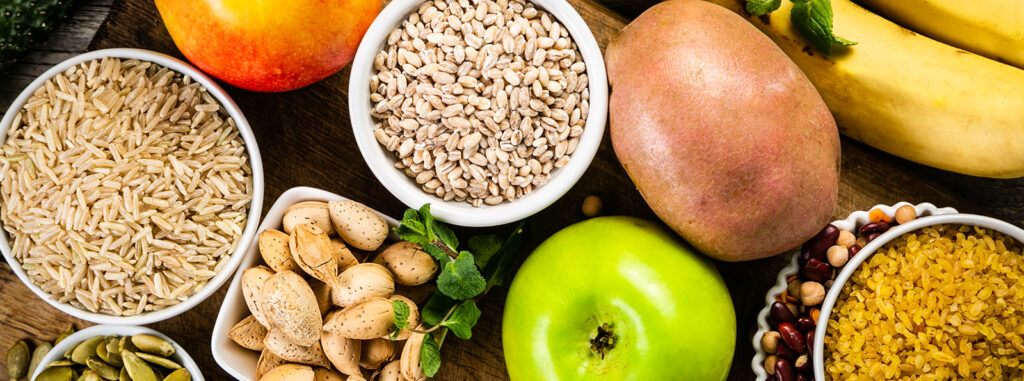What is sodium?
Sodium is an essential mineral that plays a vital role in maintaining proper bodily functions. It’s naturally found in many foods like table salt, cheese, cured meats and some baked goods. Sodium is also found not-so-naturally in over-processed foods like canned soup, snacks and fast food, and even restaurant and takeout foods. This, among many other reasons, is why at Metabolic Meals we prioritize quality ingredients from whole foods and conscious cooking in our kitchen.
Healthcare professionals define a low sodium diet as 2,000-3,000 mg per day. Most of our entrees fall between 400-700mg of sodium per meal. You can even filter for low sodium meals as you shop the menu.

Benefits of Sodium
Sodium plays a key role even in healthy meals, adding flavor, or helping bread rise for example. So while there are many risk factors of having too much sodium, it is still an essential part of our diets and dinners. Here’s a brief list of benefits:
1. Fluid Balance: Sodium helps ensure proper hydration and blood volume levels.
2. Nerve Function: The ions in sodium are a critical part of the nerve communication that enables movement and muscle contractions all throughout your body, from your heart to your brain and biceps.
3. Electrolyte Balance: Sodium is also part of a larger package of electrolytes (like potassium, chloride, and calcium), that help move nutrients and waste through your cells and aid in other cellular functions.
Risks of Sodium
Sodium sneaks in almost everywhere. In the USA, on average more than 70% of the sodium we eat comes from processed and restaurant foods. Another little-known place sodium sneaks in is over-the-counter and prescription drugs. Some of the risks of consuming too much sodium include:
1. Fluid Retention: When the balance is off, excessive sodium intake can cause water retention, which leads to bloating, swelling, weight gain and increased strain on the heart and blood vessels.
2. Heart Health: Too much sodium can lead to high blood pressure, which in turn leads to an increased risk of heart disease, stroke, and kidney problems.
3. Kidney Issues: The kidneys’ ability to filter waste and toxins from the bloodstream, as well as maintain proper fluid and electrolyte balance, greatly depends on the health of the blood vessels. Too much sodium can drastically impair kidney function.
4. Calcium Loss: High sodium intake can increase the excretion of calcium, potentially leading to the development of kidney stones and even osteoporosis down the line.
Final Take Away
It’s not always sodiums fault. While we may indeed need to decrease total sodium consumption, it’s also possible that you’re actually showing symptoms of an electrolyte imbalance. Magnesium and Potassium play a vital role in reducing blood pressure, fluid retention and overall health and performance. The same processed foods that tend to be loaded with sodium are often completely void of the other electrolytes.
Individual susceptibility to the effects of sodium can certainly vary, but it’s totally possible for almost everyone to stay within the recommended intake of sodium. This is especially true for folks striving for a more balanced diet rich in whole foods. If you do have concerns about your health or sodium intake, be sure to consult a healthcare professional for personalized advice and guidance. And if you’d like support on balanced delicious meals, we’ve got you covered.







